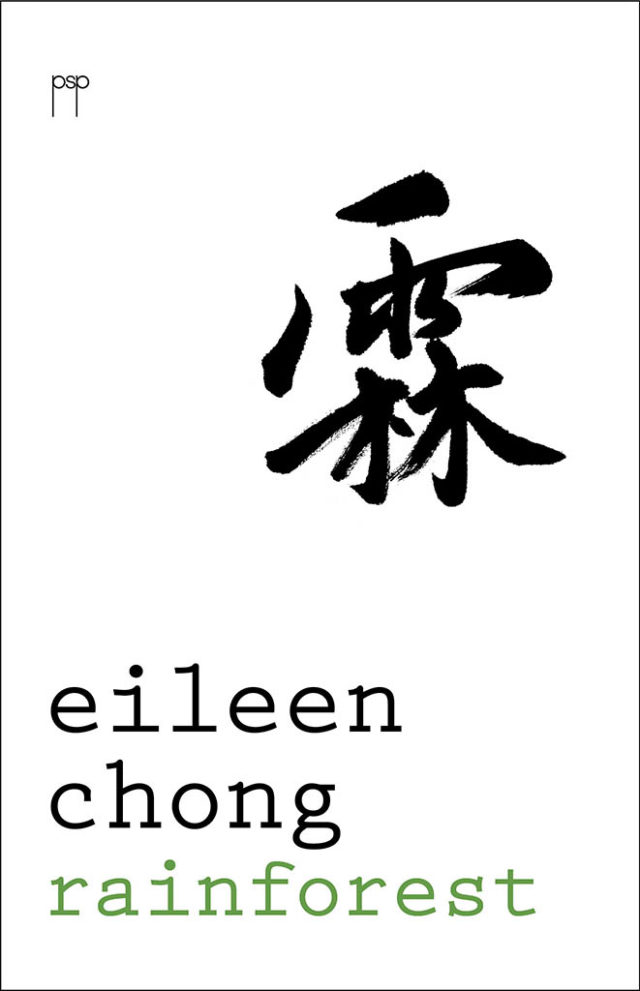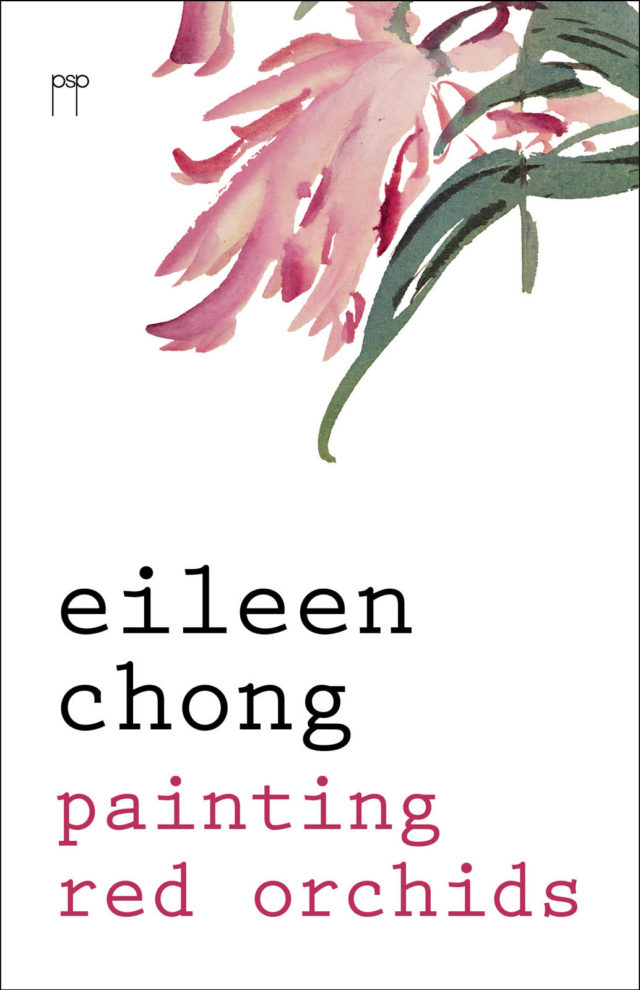ISBN 978-1-922080-86-8.


Eileen Chong’s new collection continues her exploration of the contemplative and the personal within subtly shifting contexts of food, love, history and culture. Lovers of her poetry will find much that is familiar and much that is new. Over the three volumes of work represented on this page the reader can map a transition from a precocious apprenticeship to a mature voice, through moments of light and happiness mixed with hints of grief and foreboding.
As always her technical confidence and linguistic sophistication allow her to offer poems which appear simple on the surface, transparent enough to appreciate at a first reading and yet which contain depths and resonances which repay repeated attention and thought. Through this combination of beauty and depth, Eileen Chong commands a wide and devoted following.
Painting Red Orchids was launched by Anna Kerdijk-Nicholson at Gleebooks in Sydney on Saturday 16th April 2016. The launch remarks have been published at the Rochford Street Review.
It’s nearly mid-autumn. I spy the tins
at the Asian grocer – gaudy red peonies
unchanged for forty years. Of course
I buy the mooncakes with double yolks:
here in Australia, yolk or no yolk,
they cost the same. I should wait for you,
wait for the full moon, light some lanterns
and try to make out the lunar rabbit,
the Chinese fairy, but I don’t. I cut
the mooncake into quarters and spoon
out the deep orange yolks, leaving
half-round cavities in the sweet
lotus paste. Eaten on their own,
the yolks are creamy, almost too salty.
A continent away, my mother in her kitchen
would be slicing through shell
and briny white, my father would be scraping
duck eggs into rice porridge. They always saved me
the yolks. My bowl, a cradle of bright congee
full of the gold of the mid-autumn moon.
And on my travels I came across
a boy holding his purple heart
in his hands like a broken cup. I touched
the handle – it turned into a bluebird
and tottered away on unsteady
feet. The boy unfolded
himself into a crane and tucked
his head under a wilted wing. His leg, a post
from which a flag flew red, blue and white.
I lowered the flapping thing onto the ground
and it spread out like ink. It was the cold
of the black-and-white tiles of my mother’s kitchen
seeping through my bare feet. I was
a knight. The morning sun laid
its hard hand across the breakfast toast
in stripes. The cat sneezed fairies
as it washed the plates with its whiskers. I asked
for a map. It was lowered on a glistening line
through a searing heart-shaped hole
in the sky. God loves you. I traced
my travels with tendrils of thyme.
When I got to where I was
my hands were helium and I was floating . . .
The air was cotton candy and kissed me
stickily. Then I spied you waiting
on the broad bank, cradling a rainbow.
I let the air escape my hands
and landed in the middle
of the bedroom you’d unfolded
like a rusty accordion. We curled
up in the soft sheets like stoats
in the dark. Now we sleep
to dream of life. In the morning
cabbages will shed their leaves
like jackets, trousers, petticoats.
You’ll simmer a cauldron
of silver stars and I, I will weave
you stories from gossamer
and dew. Wait now – the cat’s
coughed an elf. Wake now.
I did not mean to burn the rice tonight.
‘Planting rice is never fun’ – generations
of men, women and children ankle-deep
in padi fields, bent double at the waist,
immersing seedlings day after day.
Finally, the harvest: sharp scythes glinting
in the afternoon sun, stalks of ripened grain tossed
into baskets strapped onto backs like babies too young
to walk. Next, the rice huller, churning husks
away from the hearts. Then the long hours polishing
each dark grain into pearly white. I’d forgotten
that brown rice needed more than double
the usual measure of water. I smelt the charring,
then saw: scorched rice like black gold,
my ancestors’ ashes in a bowl.
There is nothing more difficult…than to paint a rose.
Henri Matisse
Peony, Chinese rose, history taught me about you.
You adorned the headdresses of Manchurian princesses,
pinned above tassels that swung back and forth,
mimicking their mincing walk. An upturned bowl placed
under a platform, the sway of hands for balance. A fiction
of bound feet. Were you real, flower of fortune?
What does a peony smell like? I have nestled
my nose within their depths but breathed nothing
of their notes. Perhaps I needed to have crushed them,
smeared their juice in my hands, eaten their petals one
by one. I know that women who swallow flowers
must avoid princes, rivers and deposed emperors.
Like the rose, so many shades of blood and white.
One birthday I woke to find peonies in the shade
of night’s red stabbed in a vase. Their hearts:
so closed, so full of mystery. In seven days a shake
and the flowers would fall apart. I would taste
the naked heads: nothing, not even pollen, would remain.
Under the sign of mudan, you bought me my first gift.
Celadon-green, cool against the peach skin of my cheek.
Too big: the bangle slipped on and off my wrist. When a man
gives you jade, it’s like diamonds, only truer. How was I to know
we were only mortal? I bound the cracks with gold.
I thought I was to die. Then it shattered into four.
In the darkness of the shophouse, arrayed on a stand:
bottles containing the essence of peonies. Pivoine magnifica,
the magnificent peony. Healer of the gods, I see you
tacked under the alter in a takeaway shop. On the shelf,
Guan Yu, deified, stands ready for battle. His face, painted
crimson: the shade of these peonies before rot.
We cut away the tape and unroll the carpet.
Pink and red swirls tufted in pure new wool.
Blossoms on branches form the background
to stylized cross-sections of peonies: leaves,
stems, blooms. One lady nods and smiles:
China’s national flower. Is it? Am I? I’ve forgotten.